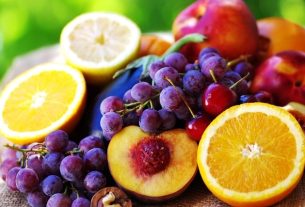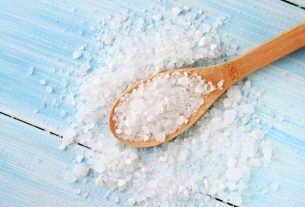Some home remedies can be used to treat kidney stones, such as drinking stonebreaker tea or hibiscus tea, as they have diuretic and anti-inflammatory properties that combat inflammation caused by the passage of these stones through the urinary tract.
Another home treatment option is black mulberry leaf tea, which also has diuretic properties and can be used as a complementary treatment for kidney stones, just like lemon juice.
Ideally, these remedies should always be used under the supervision of a doctor or herbalist. Furthermore, it is advisable to buy the plants in natural product stores, to avoid confusing them with other similar plants. Home treatment for kidney stones must also be complemented with an adequate diet. See how to eat correctly for kidney stones.

1. Stonebreaker tea
The stonebreaker plant, scientifically known as Phyllanthus niruri, It is used to treat kidney stones, as it reduces the growth of crystals that form kidney stones and reduces the growth of existing stones in the kidneys.
Ingredients:
- 1 liter of water;
- 20 g of stonebreaker extract.
How to use:
To prepare the tea you need to boil the water and then add the medicinal plant. Let it rest for 15 minutes, strain and then drink. You can drink this tea up to 3 times a day. Find out more about the benefits of stonebreaker tea.
Stonebreaker tea should not be used by younger children, pregnant or breastfeeding women, and should not be used for more than 2 weeks in a row.
2. Black mulberry tea
Black mulberry contains substances known as flavonoids, which have antioxidant and anti-inflammatory activity, and this medicinal plant also has diuretic properties that help eliminate kidney stones.
Ingredients:
- 15 g of dried black mulberry leaves;
- 1 liter of water.
Preparation mode:
Place the leaves in boiling water and let them rest for 15 minutes. Then strain and drink the tea 4 times a day.
Black mulberry tea should not be consumed by children or during pregnancy or breastfeeding.
3. Java tea
The medicinal plant popularly known as java and scientifically as Orthosiphon aristatus It is widely used to treat kidney stones and urinary infections, mainly due to the anti-inflammatory properties it has.
Ingredients:
- 6 g of dried java leaves;
- 1 liter of water.
Preparation mode:
To prepare the tea, place the dried java leaves in boiling water and let it steep for 10 to 15 minutes, then filter. Afterwards, it is recommended to drink the tea 2 to 3 times a day.
Java tea should not be used by children, pregnant or lactating women or people with cardiovascular problems, ulcers, gastritis or kidney failure.
4. Lemon juice
Lemon contains a compound called citrate, which helps break down calcium deposits that form kidney stones, so it can be used to eliminate and slow the growth of these stones.
Ingredients:
- 1 whole lemon;
- 500 mL of water.
Preparation mode:
Squeeze the lemon directly into the water, which can be chilled for a more pleasant flavor. The ideal is not to add sugar, but if it is necessary to sweeten, it is recommended to add a little honey.
5. Hibiscus tea
Hibiscus is a plant that can be used to treat kidney stones, as it has diuretic properties, that is, it increases urinary frequency. This plant also helps reduce the deposition of crystals in the kidneys.
Ingredients:
- 2 tablespoons of dried hibiscus;
- 1 liter of water.
Preparation mode:
To make hibiscus tea, you must boil the water and then add the dried hibiscus, let it rest for 15 minutes, strain and then drink. This tea can be consumed up to 4 times a day. See other benefits of hibiscus and how to use it.
Hibiscus tea should not be consumed during pregnancy or breastfeeding, or by children under 12 years of age and by people with kidney or liver disease. Furthermore, it should be avoided by people taking medications for high blood pressure, such as diuretics, or diabetes.
6. Leather hat tea
The leather hat, whose scientific name is Echinodorus grandiflorushas diuretic and purifying properties, which helps eliminate kidney stones, in addition to having anti-inflammatory action, promoting symptom relief.
Ingredients:
- 20 g of dried leather hat leaves;
- 1L of water.
Preparation mode:
Place the leather hat leaves in a pan with water and let it boil for 10 minutes. Then strain, wait until it is warm and drink 2 to 3 cups a day.
Leather hat tea should not be used by people who have heart or kidney failure, low blood pressure, or who are taking medication for high blood pressure. This tea should also not be used by pregnant or breastfeeding women.
7. Sauce cha
Parsley has diuretic and cleansing properties as it is rich in iron and flavonoids, which help to increase urine volume and eliminate kidney stones.
Ingredients:
- 1 cup of water;
- 1 teaspoon of chopped fresh parsley including the stem.
Preparation mode:
Boil the water, remove the water from the heat then add the parsley to the boiled water and stir. Leave to rest for 20 minutes and take throughout the day.
Parsley tea should not be used during pregnancy or breastfeeding or by people who have serious kidney problems, such as acute or chronic kidney failure or nephrotic syndrome, or who have had surgery less than 1 month ago. Furthermore, it should not be used by people who use anticoagulant medications.
8. Dandelion tea
Dandelion tea is rich in substances such as nitriles, phenylacetic acid and dehydrovomifoliol, with a diuretic action that helps increase the elimination of urine and kidney stones.
Furthermore, this tea has anti-inflammatory properties that help relieve the pain of kidney colic.
Ingredients:
- 2 teaspoons of crushed or powdered dandelion root;
- 200 mL of filtered water.
Preparation mode:
Boil the water and then add it to the cup containing the dandelion root. Let it rest for 10 minutes. Strain, let cool and drink up to 3 times a day.
This tea should not be used by pregnant or breastfeeding women.
9. Horsetail tea
Horsetail tea has a strong diuretic action due to quercetin, apigenin and caffeic and cinnamic acids in its composition, which help to increase urine elimination, favoring the elimination of kidney stones.
Ingredients:
- 1 tablespoon of dry mackerel stem;
- 1 cup of filtered water.
Preparation mode:
Boil the water and then add it to the cup with the dry mackerel stalk, letting it rest for about 5 to 10 minutes. Strain, wait for it to cool and drink up to 2 cups a day, preferably after the main meals of the day.
Horsetail tea should not be used for more than 1 week in a row, to avoid dehydration and elimination of some essential minerals for the body, and cause side effects such as diarrhea, severe headache, weight loss, pancreatitis, changes in heart rate and muscle weakness.
This tea should not be used by pregnant or breastfeeding women or by people with heart failure, low blood pressure and kidney disease, for example, due to its ability to lower blood pressure and have a strong diuretic effect.
10. Corn Beard Tea
Corn beard tea has a diuretic effect, which helps to increase urinary frequency, favoring the elimination of kidney stones.
Ingredients:
Preparation mode:
Boil the water together with the corn bean and then cover and let it rest for 5 minutes. Strain, wait for it to cool and drink up to 3 cups a day.
Corn beard tea should not be used by pregnant or breastfeeding women. In addition, it should be used with caution by people who use medications for high blood pressure or diabetes, anticoagulants or diuretics, or men who have prostate hyperplasia.
11. Sarsaparilla tea
Sarsaparilla tea has an irritating effect on the kidney mucous membranes, causing a diuretic effect that helps eliminate kidney stones.
Ingredients:
- 2 tablespoons of dry sarsaparilla root;
- 250 mL of water.
Preparation mode:
Add the ingredients to a pan and boil for about 3 or 4 minutes. After this time, cover the pan and let it rest for 10 minutes. Then strain and drink 1 to 2 cups warm per day.
Sarsaparilla tea should not be used by children, pregnant or breastfeeding women, people who have high blood pressure, heart or kidney failure, or anemia, or who take lithium or digoxin.
12. Ash infusion
Ash infusion, made from the medicinal plant Higher ashhas anti-inflammatory and analgesic action that can help alleviate renal colic caused by kidney stones.
Ingredients:
- 10 to 20 g of dried ash leaves;
- 1 liter of filtered water.
Preparation mode:
Boil the water, turn off the heat, add the dried ash leaves and let it rest for 10 minutes. Then strain and drink 2 to 3 cups a day.
Ash tea should not be used during pregnancy or breastfeeding or by people taking painkillers.
Check out some diet tips to avoid kidney stone attacks:

Sign up for our newsletter and stay up to date with exclusive news
that can transform your routine!
Warning: Undefined array key "title" in /home/storelat/public_html/wp-content/plugins/link-whisper-premium/templates/frontend/related-posts.php on line 12
Warning: Undefined array key "title_tag" in /home/storelat/public_html/wp-content/plugins/link-whisper-premium/templates/frontend/related-posts.php on line 13



